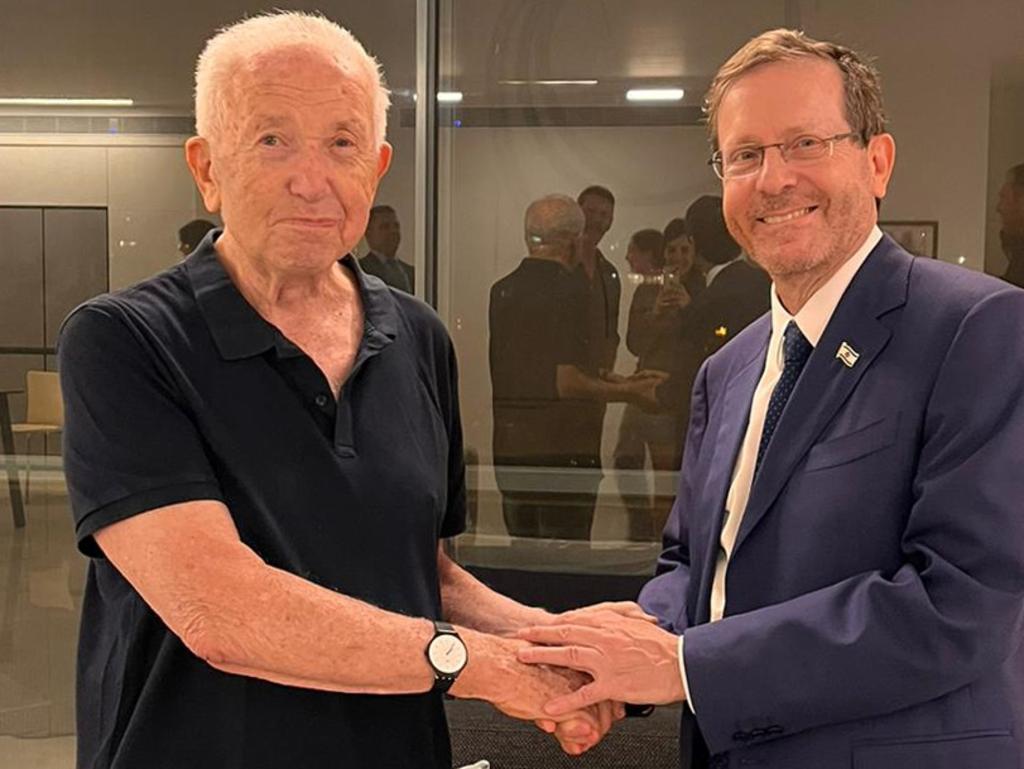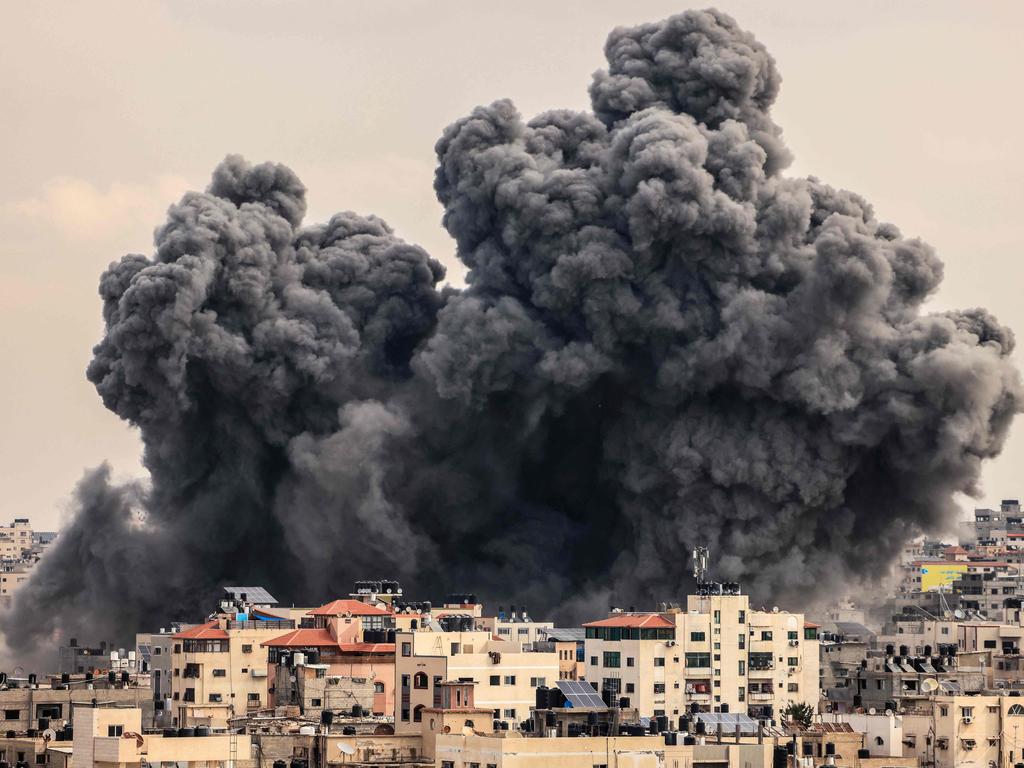Only chance of peace in the Middle East is a proportionate war
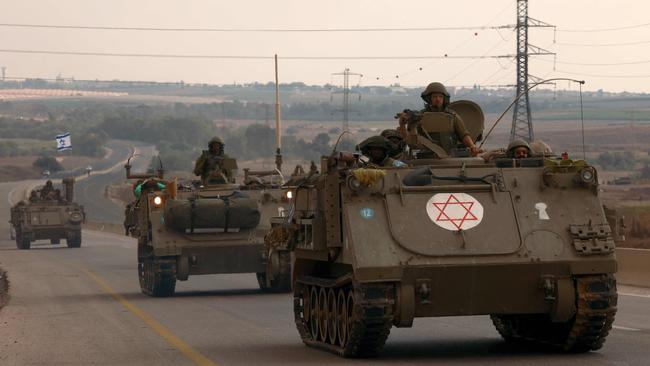
Everyone seems to agree that Israel’s response to the murders perpetrated by Hamas should be proportionate. But what does that mean?
Let me start in January 1945. As my mother and her sisters travelled on the train that took them from Belsen to freedom, they were shocked by what they saw out of the window. They couldn’t sleep and all they could do was watch Germany go by. The clear night revealed the landscape, a Berlin reduced to rubble. As my Aunt Eva observed, with the words of a child: “Almost everything was bombed, and everything was a big mess.”
Emaciated, hardly able to stand, brought low by disease, they were still able to feel keenly what the country of their birth had been reduced to. As they had done a year earlier, in transit from one camp to another, when they had seen what Allied bombing had done to Bremen.
Many members of my family had died by the time the girls journeyed through Berlin. And the family deaths were not yet over. My mum and her family had suffered every loss imaginable - of country, of property, of loved ones. So was what happened to Berlin, the misery and destruction and death visited on German civilians, proportionate to what had been done to my mother?
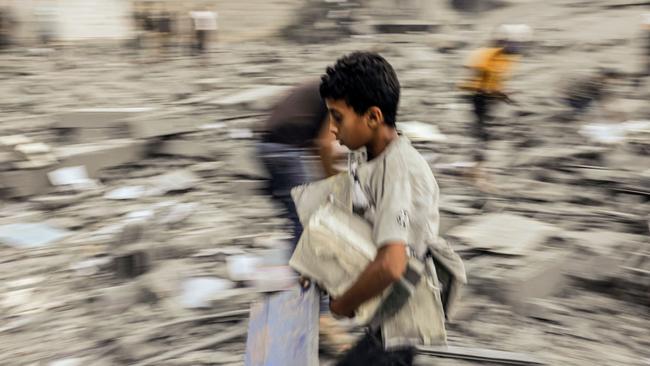
To ask this question as one of numbers - as a contest between the numbers killed by one or the other side - is to realise immediately that it is unanswerable. And that to even attempt to answer it is obscene. There is not a single innocent death that could put right what was done to my mother. Not one. To think that it would be right to kill a random German to make up for the murder of Aunt Trude and another for the murder of Uncle Jan and a third for young cousin Fritz is repulsive.
The mathematics of netting off one innocent lost life with another is a morally unacceptable exercise. And to draw up a table in which the death of a Nazi guard is equated with the death of someone they killed is worse still. This idea of proportional numbers is warped.
It is also useless. Because, struck though they were by the terrible scene out of the train window, none of the girls thought it unnecessary. Germany had to be defeated and there wasn’t much of an alternative to the destruction they were witnessing. Even though, doubtless, there were innocent people underneath the rubble.
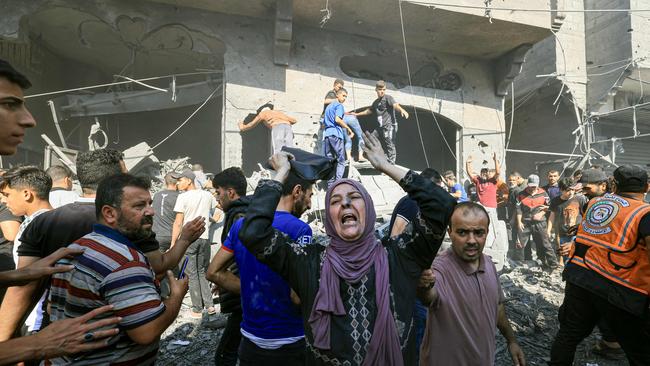
So proportionality based on death comparison is appalling and a hopeless test of an action. Yet the idea of proportionality is nonetheless a vital one. In fact I think there are few problems in human affairs that do not rely on having a sense of proportion. Expecting Israel’s response to Hamas to be proportionate is an entirely correct thing to do.
What made my family react as they did to the sight of Berlin? It was that, horrific though the death toll had clearly been, they believed it to be required to achieve the military objective. And that the military objective was the right one.
These are the tests that ought now to be applied to Israel’s actions. Is the military objective necessary? When pursuing it, were civilian casualties intentional? And even if they were unintentional, were they excessive in relation to the achievement of concrete military advantage?
These are tough tests and require Israel to take care with everything it does. But they are also not bogus tests. They accept that Israel has the right to defend itself and that it is inevitable that, when it does so, some innocent people will die.
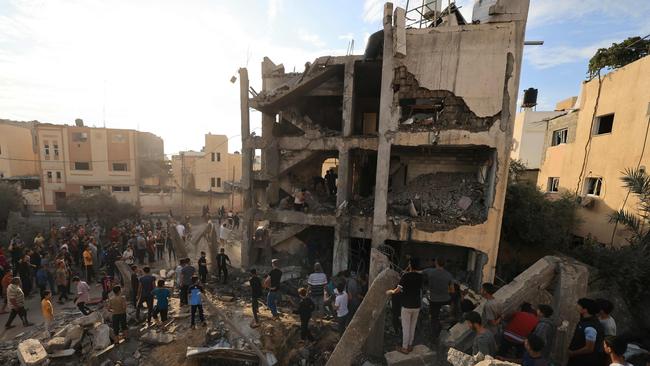
They are also tests that Hamas failed. They intentionally targeted civilians, behaving with brutality to all they encountered. Their military objective was hard to discern but it was certainly not to improve living conditions in Gaza, which they have deliberately made worse. Nor was it to secure peace, which they spurn. Or a Palestinian state, in which they have little interest. Or democracy, which they hate. Or liberty, to which they are opposed.
It is hard to shake the idea that this is a death cult whose aim is simply the killing of Jews.
So a reasonable and proportionate military objective for Israel is to destroy the leadership and infrastructure of Hamas. To do this is not to needlessly cause more death and suffering. It is to provide just a small glimmer of a chance for peace. For there will never be peace with Hamas. And there will never be peace while Palestinians accord to Hamas the prestige of victory.

On previous occasions Israel has degraded the capability of Hamas before withdrawing. This time, I am sure, they will not think this enough. And sadly, I believe they will be right. The prospect before us, therefore, is a grim one. Nevertheless the international community and humanitarians everywhere should want Israel to succeed and should not impose on it expectations or conditions that prevent it from doing so.
If Israel fails, or falls short, this will not reduce the suffering in Gaza, it will simply prolong fighting and increase the number of innocents who die.
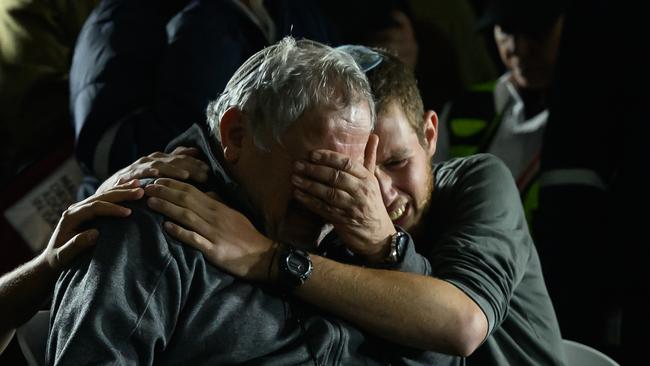
The Oslo peace process in the early 1990s made progress because the Palestine Liberation Organisation was on the verge of bankruptcy after the fall of the Soviet Union and Yasser Arafat’s decision to support the Iraqi invasion of Kuwait deprived it of its main funders. At this moment the Israelis perceived that they, too, could benefit from negotiations. They saw that they couldn’t hold on for ever without a deal with the Palestinians.
If Israel defeats Hamas such a moment might (it just might) come again. Israel would have to want it, and often it has not. There are zealots in Israel too and many who want to crush not only Hamas but any Palestinian aspirations. But perhaps (perhaps) the disastrous security failure of the Netanyahu government might change Israeli politics enough to make it possible. Maybe there will be a dawning understanding that swapping land for peace remains the only way of living securely.

Yet this is entirely dependent on the success of the operation against Hamas. Because Israel cannot reasonably be expected to relax its guard or share the land with murderous fundamentalist neighbours drunk on killing, raping and kidnapping. Israel is a democracy. And anybody proposing accommodation with Hamas will not win, or deserve to win, power.
There was a moment when Israel was urged to talk with Hamas because they were the elected government of part of Palestine. This was always a naive policy, but now it is an impossible one. So believers in peace have got to hope that Israel wins as quickly and decisively and completely as the dreadful situation allows. For this is what proportionate really means. And Israel’s actions must be proportionate.
The Times

